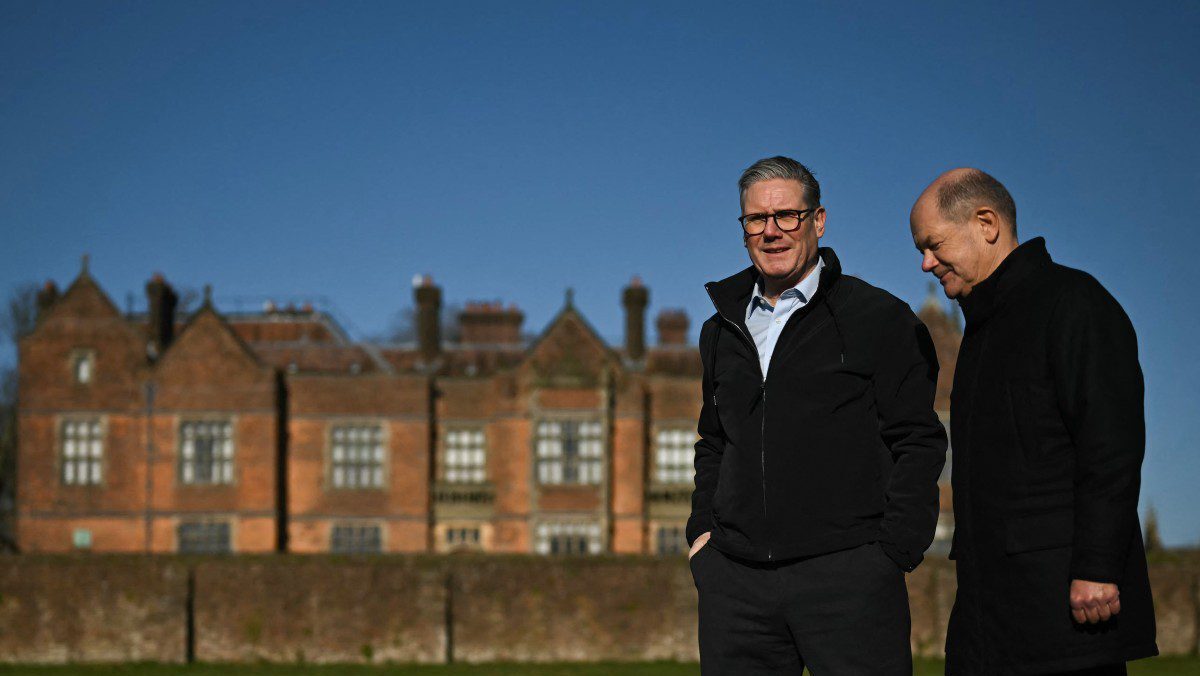
Britain’s Prime Minister Keir Starmer speaks with Germany’s Chancellor Olaf Scholz as they have a walk in the garden of the Chequers, in Aylesbury, England, on February 2, 2025.
Photo: Ben STANSALL / POOL / AFP
Talks on a Brexit ‘reset’—or Breset, if we can coin a phrase—took place in Brussels today, in the same building where Conservative then-Prime Minister Ted Heath signed the accession treaty for Britain to join what later became the European Union in 1972. This, said Reform leader Nigel Farage, was “deliberate and humiliating,” and reveals that Labour PM Keir Starmer “has learned nothing from the Brexit vote.”
The EU has invited @Keir_Starmer to a leaders summit in the very building where Ted Heath signed away our sovereignty in 1972.
— Nigel Farage MP (@Nigel_Farage) February 3, 2025
This is deliberate and humiliating.
Starmer has learned nothing from the Brexit vote and it will come back to bite the Labour Party.
It is no surprise, then, that the government is open to ceding powers to Brussels on energy. Namely, UK officials are reportedly in discussions to re-enter the EU Emissions Trading System, which sets caps on the amount of greenhouse gasses that can be produced by various industries. Polish prime minister Donald Tusk last month criticised the scheme, warning that discontent with high energy prices resulting from this and other environmental policies could “wipe out” establishment governments.
Longtime Brexiteer and former MEP Ben Habib told europeanconservative.com that such considerations are possible because “we never got Brexit” in the first place.
It is easy for Starmer to take us back towards the EU and their Emissions Trading Scheme because, amongst the treaty pledges made by [former Tory PM Boris] Johnson, was not to reverse net zero.
He added that Britain’s “only hope” was for Starmer to follow Donald Trump’s lead and ditch harmful—not to mention unachievable—environmental targets. But,
The chances of that? NIL.
Reports also say that UK officials are looking to more closely align the country with EU standards on food, animal products and agricultural goods, as well as on professional qualifications.
Meanwhile, leaders in Brussels are apparently coming around to the view that Britain might not sign a ‘youth mobility agreement,’ which migration expert Robert Bates previously told this publication was “literally synonymous with freedom of movement, an institution that the British public steadfastly rejected in 2016.” That said, Labour ministers continue to use evasive language when pressed on the scheme, suggesting they would rather it didn’t go ahead (publicly, at least), but that it does not constitute a red line.
